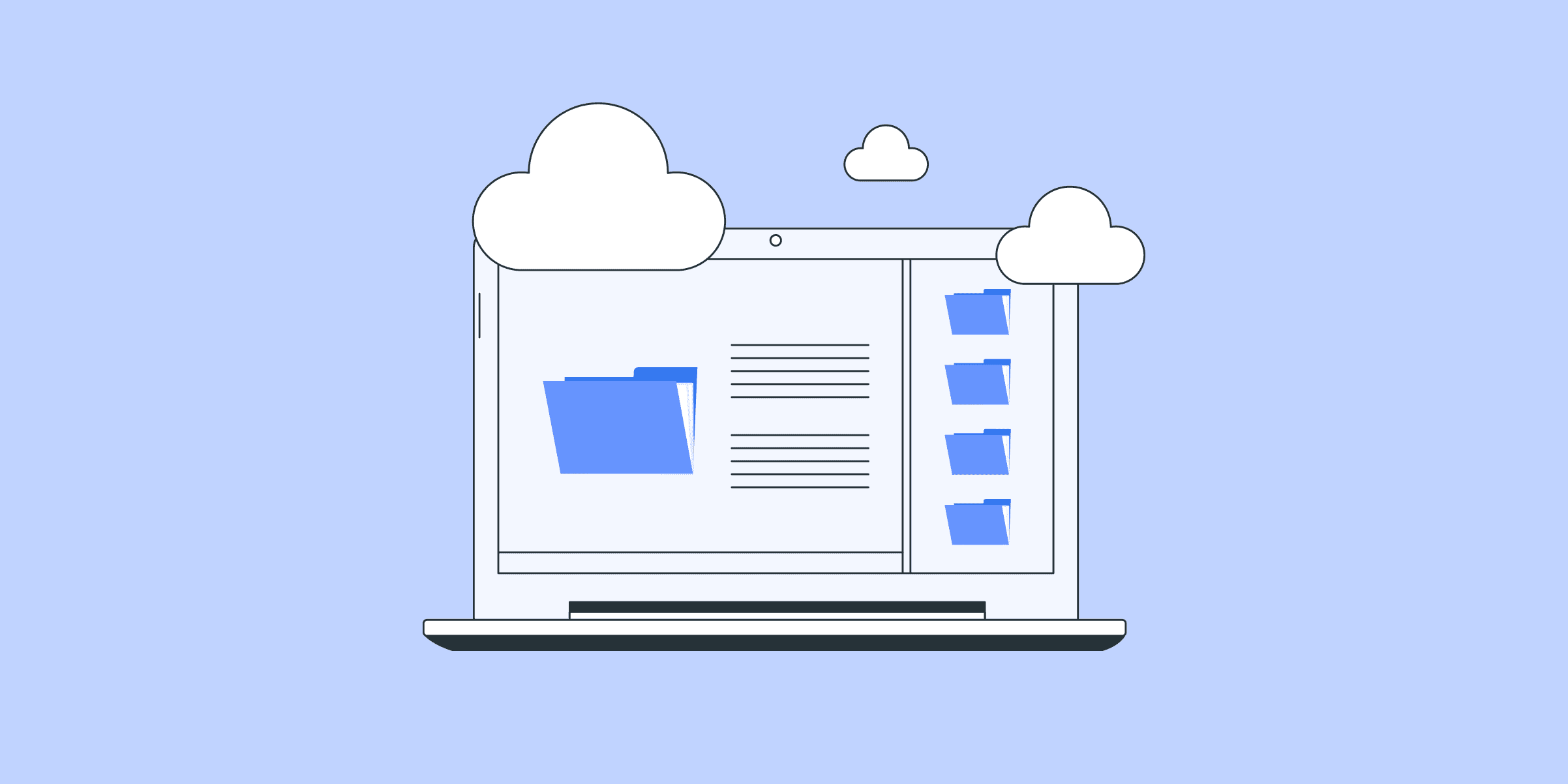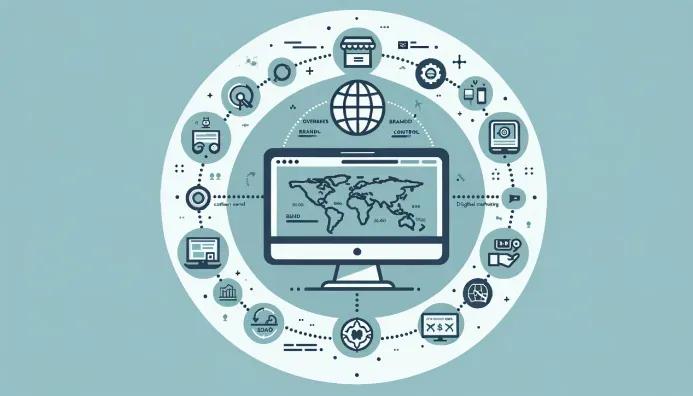海外代理
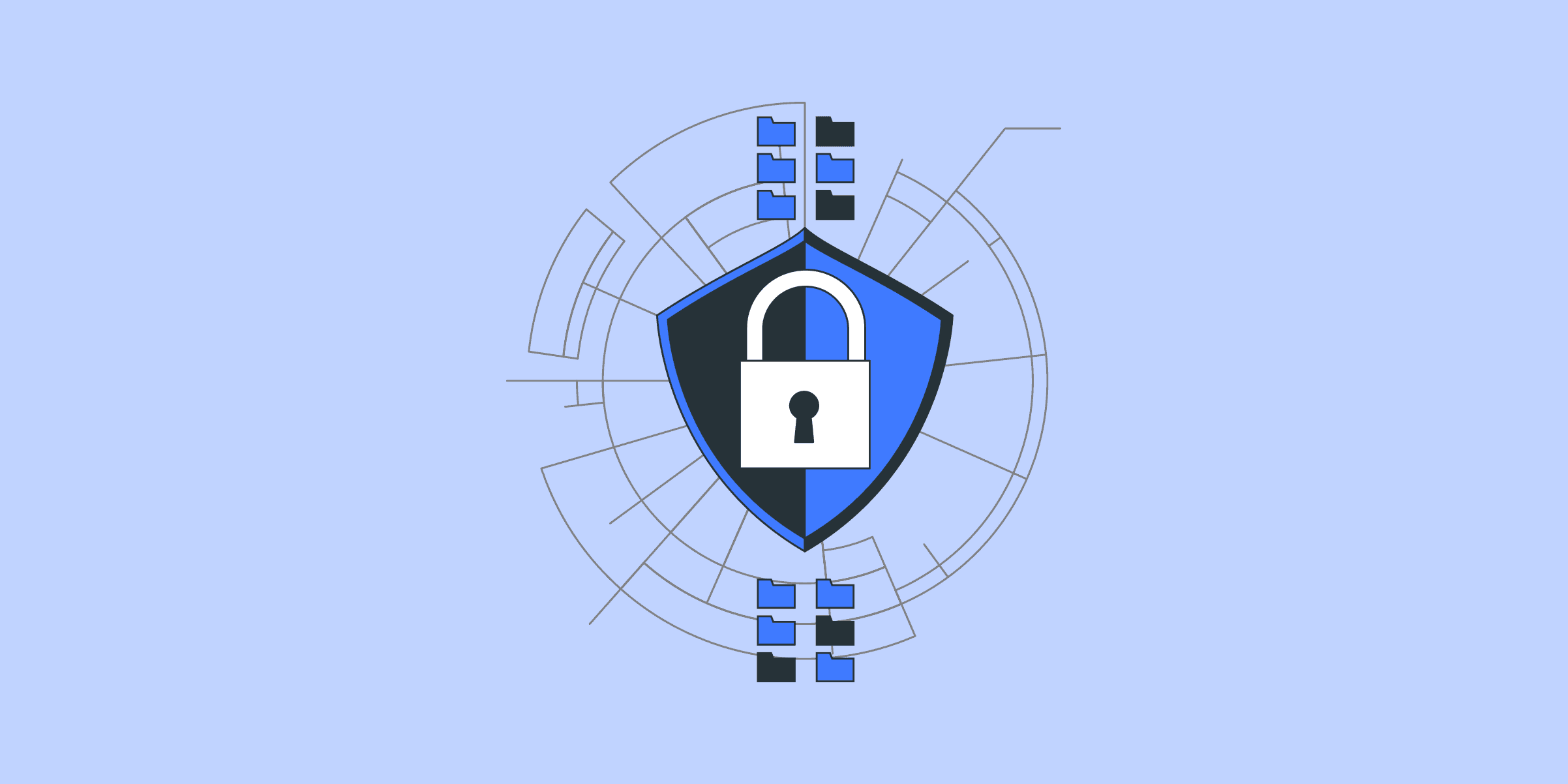
Introducing LIKE.TG SOCKS5 Residential Proxies: Unleash Your Online Potential
When it comes to online activities that require anonymity, security, and unrestricted access, having a reliable and efficient proxy service is essential. LIKE.TG's SOCKS5 Residential Proxies program is a recommended solution that offers a range of advantages, enabling you to navigate the online world with ease.One of the standout features of the LIKE.TG SOCKS5 Residential Proxies program is its flexible pricing structure. With this plan, you are charged based on the number of IP addresses you require. This allows you to generate one or multiple proxy IPs, catering to your specific needs. Whether you need proxies for a single browser or multiple browsers simultaneously, the program offers the flexibility to accommodate your browsing requirements.Moreover, the proxies provided in this program are residential, which adds an extra layer of authenticity to your online presence. Residential proxies are sourced from real residential IP addresses, making them indistinguishable from regular internet users. This ensures that you can navigate online platforms, access restricted content, and perform web scraping tasks without raising suspicion.The LIKE.TG SOCKS5 Residential Proxies program also offers comprehensive filtering options. You have the ability to filter proxies based on countries, cities, and ZIP codes. This level of granularity allows you to target specific regions or areas, granting you greater control over your online activities and access to location-restricted content.In terms of performance, this program boasts unlimited bandwidth and no expiration limitations. You can browse, stream, and perform data-intensive tasks without worrying about bandwidth restrictions or the proxies expiring. This ensures a seamless online experience, empowering you to carry out your activities without interruptions.The program also supports an API, enabling you to integrate proxy functionality into your own applications or tools. The API feature allows for seamless automation and customization, enhancing the efficiency of your online operations.It's important to note that the duration of the IP addresses provided by the LIKE.TG SOCKS5 Residential Proxies program may vary. The duration depends on the IPs themselves and the specific websites you visit. While some IPs may last only for a few minutes, others can persist for a longer duration, up to a maximum of 6 hours. This variability allows you to adapt to the requirements of different websites and ensures a dynamic proxy experience.In conclusion, the LIKE.TG SOCKS5 Residential Proxies program is a highly recommended solution for those seeking reliable, authentic, and feature-rich proxy services. With its flexible pricing, residential proxies, extensive filtering options, unlimited bandwidth, and API support, this program empowers you to navigate the online world with ease and confidence.Embrace the power of LIKE.TG SOCKS5 Residential Proxies to unlock your online potential. Whether you are an individual seeking anonymity, a business conducting market research, or a developer integrating proxy functionality, this program is designed to meet your needs and provide a seamless and secure browsing experience. Step into the world of LIKE.TG and revolutionize your online presence today.

Why do you need Unlimited Proxies?
If you are looking for a reliable and efficient proxy service for your online activities, LIKE.TG's S5 Unlimited Residential Proxies program could be the perfect solution for you. This program offers numerous advantages and features that make it stand out from other proxy services in the market.One of the most significant advantages of the LIKE.TG S5 Unlimited Residential Proxies program is that it offers unlimited traffic and unlimited IP addresses. This means that you can use as much data and as many IP addresses as you need without worrying about any restrictions or limitations. This is especially useful for businesses and individuals who need to perform large-scale web scraping or data mining tasks.In addition, this program also offers unlimited requests, allowing you to send as many requests as you need without any limits. This can be a game-changer for businesses that need to perform large-scale data collection or analysis tasks.Another advantage of the LIKE.TG S5 Unlimited Residential Proxies program is that it offers more than 50 countries to choose from when selecting IP addresses. This means that you can access websites and online services from all over the world, giving you more flexibility and options when conducting your online activities.The program supports both SOCKS5 and HTTP (S) protocols, which are two of the most commonly used protocols for proxy services. This means that you can use the program with a wide range of applications and services, including web browsers, email clients, and other online tools.Furthermore, the IP addresses provided by this program can last up to 24 hours online, which means that you can use them for an extended period without worrying about them expiring or becoming unavailable.The program also offers API features, which allow you to automate and customize your proxy usage. This can be especially useful for businesses that need to perform large-scale data collection or analysis tasks on a regular basis.Another unique feature of the LIKE.TG S5 Unlimited Residential Proxies program is that it allows you to mass generate IP addresses and ports. This means that you can quickly generate a large number of IP addresses and ports for your specific needs.Additionally, you can bind the IP addresses you want in the proxy list, giving you even more control and flexibility over your proxy usage. And if you prefer, you can also directly generate IP addresses from the client, making it easier to use the program on the go.Overall, the LIKE.TG S5 Unlimited Residential Proxies program is a highly recommended proxy service that offers numerous advantages and features. Its unlimited traffic and IP addresses, unlimited requests, and support for multiple protocols make it a great choice for businesses and individuals who need reliable and efficient proxy services for their online activities.

What Are Residential Proxies and How to Use Them?
In today's digitally connected world, proxies have become an essential tool for online activities. They provide anonymity, security, and the ability to bypass geographical restrictions. One type of proxy that has gained significant popularity is residential proxies. In this article, we will explore what residential proxies are and how they can be utilized effectively.Understanding Residential Proxies:Residential proxies are IP addresses assigned to real residential devices, such as personal computers or smartphones, that are connected to the internet. These proxies route your internet traffic through these residential devices, making it appear as if you are browsing from a genuine residential location. Unlike data center proxies that use servers, residential proxies provide a higher level of legitimacy, as they are associated with real internet service providers (ISPs).Benefits of Residential Proxies:1.Anonymity: By masking your original IP address with a residential IP, you can browse the web anonymously, keeping your online activities private.2. Bypassing Restrictions: Residential proxies allow you to access region-restricted content by providing an IP address from a specific geographic location.3. Web Scraping: For businesses or researchers, residential proxies are valuable for gathering data from websites without triggering bot detection systems. The IP addresses associated with residential proxies mimic real user behavior, reducing the chances of being detected as a bot.4. Sneaker Copping: In the world of sneaker reselling, residential proxies are often used to increase the chances of purchasing limited edition sneakers. By simulating multiple real users, they help users bypass purchase restrictions and improve their chances of securing coveted items.5. Ad Verification: Advertisers and marketers can utilize residential proxies to verify the placement and performance of their online ads across different locations, ensuring accurate targeting and ad visibility.Using Residential Proxies:1.Choose a Reliable Provider: LIKE.TG Proxy service provides 90M+ Real, clean, anonymous residential proxy IPs cover 220+ regions worldwide. Fetch HTTP(S)SOCKS5 rotating residential proxies by API or User+Pass Auth from Web Page. Download powerful proxy software to easily configure global SOCKS5 residential proxies. City, ASN-Level targeting, unmetered bandwidth unlimited concurrent sessions proxies.2. Proxy Setup: Once you have chosen a provider, follow their instructions to set up the residential proxies. This typically involves configuring the proxy settings in your web browser or using proxy management software.3. Location Selection: Depending on your needs, choose the specific residential IP location that suits your requirements. This is especially important when bypassing regional restrictions or gathering location-specific data.4. Rotating IPs: Some providers offer rotating IPs, which automatically switch the IP address after a certain number of requests. This can be beneficial for web scraping or tasks that require multiple unique IP addresses.5. Respect Terms of Service: When using residential proxies, it is crucial to abide by the terms of service of the websites you access. Respect their policies to avoid being flagged or banned.Residential proxies have emerged as a valuable tool for maintaining anonymity, bypassing restrictions, and enhancing various online activities. By utilizing these proxies, individuals and businesses can benefit from increased privacy, improved data gathering capabilities, and enhanced online security. However, it is essential to use residential proxies responsibly and ensure compliance with the terms of service of the websites you access. With the right provider and a clear understanding of their usage, residential proxies can be a powerful asset in navigating the digital landscape.

Why do we need an IP proxy?
In today's interconnected world, where online activities have become an integral part of our daily lives, the concept of internet privacy and security has gained paramount importance. One of the tools that has emerged to protect our online identities and activities is the IP proxy. In this article, we will explore the reasons why an IP proxy is necessary and how it can enhance our online experiences.What is an IP Proxy?To understand the need for an IP proxy, let's first define what it is. An IP proxy, or simply a proxy, acts as an intermediary between your device and the internet. It allows you to route your internet traffic through a different IP address, masking your original IP address in the process. This provides several advantages when it comes to online privacy, security, and accessing geo-restricted content.Protecting Online PrivacyIn an era where our personal information is constantly at risk, protecting our online privacy has become crucial. Every time we connect to the internet, our IP address serves as a unique identifier, revealing our approximate location and making us vulnerable to various threats. By using an IP proxy, we can safeguard our privacy by hiding our real IP address and making it difficult for others to track our online activities. This protects us from potential cyberattacks, identity theft, and intrusive monitoring.Bypassing Geo-restrictionsGeo-restrictions are limitations imposed on internet content based on geographical locations. Many online platforms, such as streaming services and websites, restrict access to their content based on the user's location. An IP proxy can help bypass these restrictions by allowing you to connect to the internet through an IP address from a different location. For example, if a particular streaming service is not available in your country, you can use an IP proxy to connect through a server located in a region where the service is accessible, thereby enjoying the content that would otherwise be unavailable.Enhancing Online SecurityIn addition to protecting privacy, an IP proxy can enhance online security. By acting as an intermediary, a proxy server can filter out malicious traffic, block harmful websites, and provide an additional layer of protection against cyber threats. It can help prevent direct contact between your device and potentially dangerous websites or servers, reducing the risk of malware infections, phishing attacks, and other online scams.Anonymous Web SurfingSometimes, individuals may desire to browse the internet anonymously, without leaving any digital footprints. An IP proxy enables anonymous web surfing by hiding your original IP address and replacing it with the proxy server's IP. This makes it challenging for websites, advertisers, or other entities to identify and track your online behavior, ensuring a higher level of anonymity.In a world where privacy and security concerns are growing, an IP proxy has become a valuable tool to protect our online identities and activities. By masking our IP address, we can safeguard our privacy, bypass geo-restrictions, enhance online security, and browse the internet anonymously. However, it is important to choose reliable and trustworthy proxy services to ensure the protection of your data and maintain a seamless browsing experience. With an IP proxy, we can reclaim control over our online presence and enjoy a safer and more unrestricted internet experience.
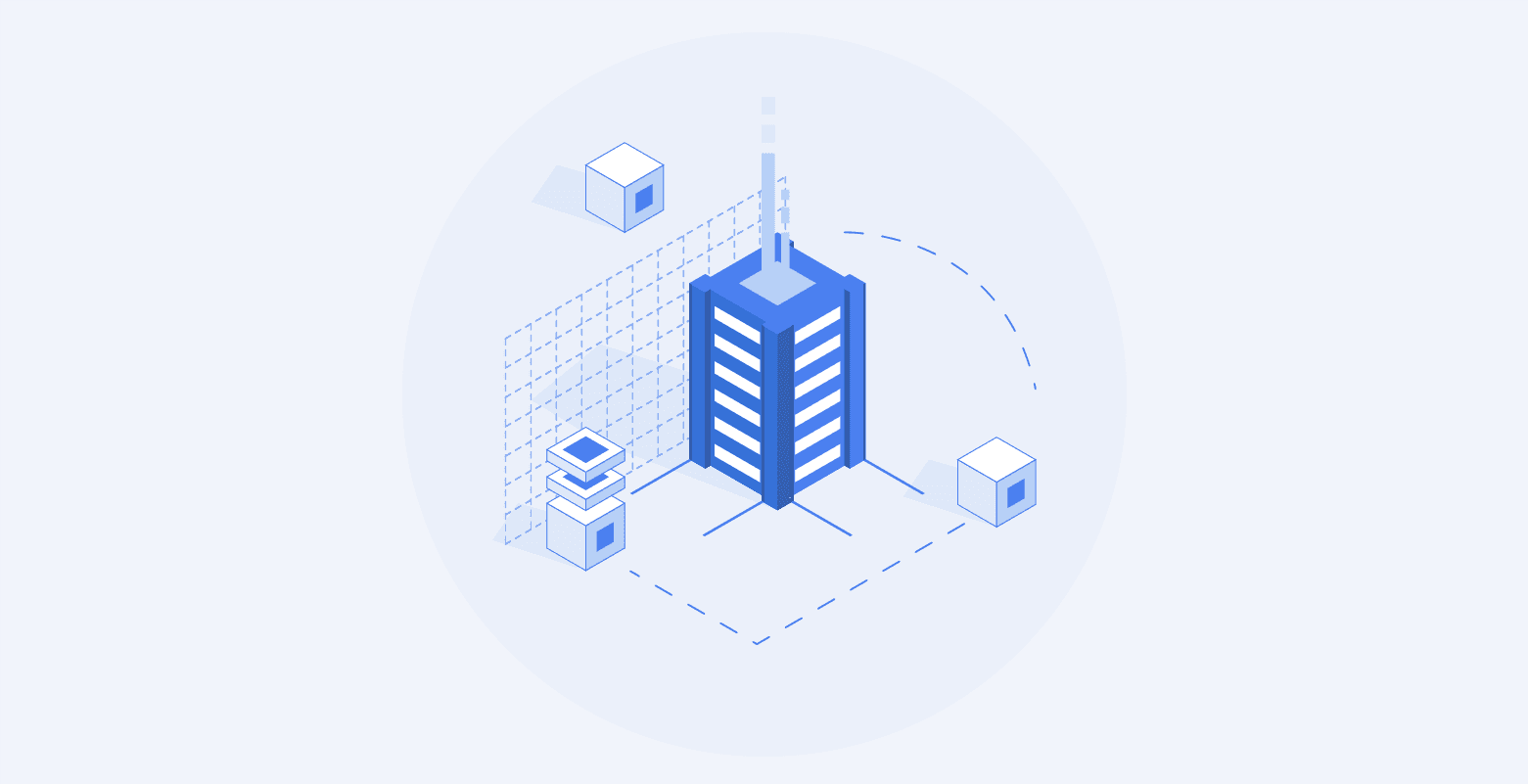
Unraveling the Mystery of SOCKS5 and HTTP(S) Proxy Protocols
In the realm of computer networking, proxy protocols play a significant role in facilitating secure and efficient communication between clients and servers. Two commonly used proxy protocols are SOCKS5 and HTTP(S). In this article, we will unravel the mystery behind these protocols, exploring their features, benefits, and use cases.SOCKS5 Proxy ProtocolSOCKS, which stands for Socket Secure, is a protocol that operates at the transport layer of the TCP/IP protocol suite. SOCKS5 is the latest version of the SOCKS protocol, offering improved performance, security, and functionality compared to its predecessors.1. Functionality: SOCKS5 acts as an intermediary between a client and a server, allowing the client to establish a connection through the proxy server. It supports various authentication methods and enables the transmission of different types of network traffic, including TCP and UDP.2. Security: SOCKS5 provides enhanced security features, such as username/password authentication and support for Transport Layer Security (TLS) encryption. These features help protect sensitive data during transmission and ensure secure communication between the client and the server.3. Versatility: One notable advantage of SOCKS5 is its ability to handle different types of network traffic beyond HTTP. It is particularly useful for applications that require non-HTTP protocols, such as online gaming, torrenting, and VoIP services. SOCKS5 can seamlessly handle these protocols and route the traffic through the proxy server.HTTP(S) Proxy ProtocolThe HTTP(S) proxy protocol is widely used in web browsing and is specifically designed to handle HTTP and HTTPS traffic. Unlike SOCKS, which operates at the transport layer, HTTP(S) proxies function at the application layer of the TCP/IP protocol suite.1. Web Browsing Optimization: HTTP(S) proxies are primarily designed to optimize web browsing experiences. They can cache web content, compress data, and filter out malicious or unwanted content. These features improve browsing speed, reduce bandwidth usage, and provide an additional layer of security.2. Compatibility: HTTP(S) proxies are supported by most web browsers, making them easily accessible and compatible with various operating systems and devices. This widespread compatibility allows users to configure their browsers to connect through an HTTP(S) proxy without the need for additional software or configurations.3. Content Filtering: HTTP(S) proxies are commonly used to implement content filtering and access controls. They can be configured to block certain websites, restrict access based on user authentication, and apply content filtering rules. This makes them valuable tools for organizations and institutions that need to enforce internet usage policies.Choosing the Right Proxy ProtocolThe choice between SOCKS5 and HTTP(S) proxy protocols depends on the specific requirements and use cases. SOCKS5 is suitable for applications that require non-HTTP protocols and need the flexibility to handle various types of network traffic. On the other hand, HTTP(S) proxies are ideal for web browsing optimization, content filtering, and enforcing internet usage policies.Understanding the differences and capabilities of proxy protocols such as SOCKS5 and HTTP(S) is crucial for maximizing network security, performance, and flexibility. Whether you require secure and versatile traffic routing or optimized web browsing experiences, these protocols offer valuable solutions. By unraveling the mystery behind SOCKS5 and HTTP(S) proxy protocols, you can make informed decisions when it comes to selecting the right protocol for your specific networking needs.

How to configure LIKE.TG Proxy on the Phone & PC?
Hi everyone, Most of our customer consult that how to configure LIKE.TG Proxies on the phone or PC. Today I will tech you how to configure it, Let's Go!IOS SYSTEMFirst, you need app like Shadowrocket.STEP 1Open Shadowrocket, click "+" to add your proxy.STEP 2Choose type: Socks 5Input your proxy information: host/port/username/password(If you use API, Please add your phone ip on IP Allowlist in LIKE.TG dashboard.)Click "Save".Proxy Pass should have/configue one international node(for limited users)STEP 3Click "Save", then choose proxy that you added.Click "Connect".ANDROID SYSTEMFirst of all, the proxy configuration tool used in the Android system is Anxray. If you have other proxy tools of the same type, you can also use them. The usage methods are similar.STEP 1Open Anxray and click "+" in the upper right corner to add a local configuration.Select Manual Input - Socks 5STEP 2Enter proxy configuration information, custom configuration name.API: First go to the dashboard to add the whitelist of mobile phone IP, and then enter the generated proxy IP and port information into Anxray.User-Pass: directly enter, host/port/username/password.Click "√" Save in the upper right corner.STEP 3Click "+" in the upper right corner again, pull to the bottom and select "Chain Proxy". Click Add Server Configuration and select an oversea network node(Not From LIKE.TG) of your own.Click Add Server Configuration again and select the SOCKS5 proxy(LIKE.TG Proxy) you just added. Click"√"Save in the upper right corner.STEP 4When the addition is complete, click on the chained proxy you just added.Click Start in the lower right corner to test the proxy.PC - Clash for WindowsSTEP 1Open Clash for Windows.Click General, and Install Service Mode.If the globe icon next to Service Mode is gray, you need to click Manage on the right side to install it, and the globe icon will be green when the installation is successful.STEP 2Click “TUN Mode” and “Systerm Proxy”.STEP 3Click “Proxies” - “Global”, and selete a vmess your want.STEP 4Then you can configue LIKE.TG proxy on your PC or Fingerprint Browser or Extension.Copy the IP bound in LIKE.TG client to the fingerprint browser/PC/extension to test, the proxy is successful and the IP attribution is the same.

The Difference Between HTTP and HTTPS Protocols
In digital age, where data security and privacy are paramount, understanding the difference between HTTP and HTTPS protocols is essential. These acronyms may seem similar, but they represent two distinct communication protocols used to transmit information over the internet. In this article, we will delve into the dissimilarities between HTTP and HTTPS, exploring their security features, functionality, and the importance of adopting HTTPS for secure web browsing.HTTP: The Foundation of Web Communication:HTTP, which stands for Hypertext Transfer Protocol, is the protocol that facilitates communication between web browsers and servers. It enables the transfer of information and resources, such as HTML pages, images, and videos, across the internet. HTTP operates over port 80 and is a stateless protocol, meaning it does not retain information about previous interactions. When you access a website using HTTP, the data exchanged between your browser and the server is sent in plaintext, making it susceptible to interception and tampering.HTTPS: Security in Web Communication:HTTPS, or Hypertext Transfer Protocol Secure, is an extension of HTTP that incorporates encryption and authentication mechanisms to ensure secure data transmission. The fundamental difference lies in the addition of SSL/TLS (Secure Sockets Layer/Transport Layer Security) encryption protocols. When a website is accessed over HTTPS, the communication channel between the browser and the server is encrypted, making it significantly more challenging for attackers to eavesdrop or manipulate the data.Encryption and Data Integrity:The primary benefit of HTTPS is encryption. SSL/TLS encryption employs cryptographic algorithms to transform data into an unreadable format during transmission. This encrypted data can only be decrypted by the intended recipient, ensuring confidentiality. Additionally, HTTPS provides data integrity, guaranteeing that the information remains unchanged during transit. By using digital certificates issued by trusted Certificate Authorities (CAs), HTTPS verifies the identity of the server, ensuring that users are communicating with the intended website and not an impostor.Trust and Security Indicators:One notable difference between HTTP and HTTPS is the visual indicators displayed by web browsers. When browsing a website secured with HTTPS, users typically see a padlock icon in the address bar, indicating a secure connection. Additionally, some browsers may show the website's name in green or display a "Secure" label to provide reassurance to users. These trust indicators foster confidence among visitors and encourage safe online interactions.Why Adopt HTTPS:With the increasing prevalence of cyber threats, adopting HTTPS has become crucial for website owners and users alike. By using HTTPS, website owners protect sensitive user data, such as login credentials, credit card information, and personal details, from interception and unauthorized access. This practice enhances user trust, especially for e-commerce websites and platforms handling confidential data.Moreover, search engines have recognized the importance of secure browsing. Major search engines like Google consider HTTPS as a ranking factor, which means that websites using HTTPS may benefit from improved search engine visibility. Consequently, migrating from HTTP to HTTPS has become an industry best practice for website owners and developers.In the evolving landscape of the internet, the difference between HTTP and HTTPS protocols holds significant implications for security and data protection. While HTTP is the foundation of web communication, it lacks encryption and exposes data to potential risks. In contrast, HTTPS establishes secure and encrypted connections, safeguarding sensitive information and ensuring data integrity. The adoption of HTTPS is crucial for website owners, users, and the overall security of the internet. As online threats continue to evolve, embracing HTTPS has become a vital step towards a safer and more trustworthy browsing experience for all.

The Role of Proxy IP in Efficient and Secure Web Crawling
Introduction:In the era of big data, web crawlers have become the mainstream method for data acquisition, replacing traditional manual data collection. However, to ensure the smooth operation of crawlers, the use of proxy IP has become essential. Proxy IP helps overcome limitations such as IP blocking by website servers. While the market for proxy IP services can be chaotic, it is important to choose a reliable provider like LIKE.TG to ensure efficient and secure web crawling.I. The Importance of Proxy IP in Web Crawling1. Ensuring High Anonymity:- Using high anonymous proxy IP prevents user access requests from being detected.- Transparent and ordinary anonymous proxy IPs can be easily identified, leading to IP restrictions.2. Stability and Efficiency:- Proxy IP speed directly affects the number of tasks completed by crawlers.- Stable proxy IP operation enhances the efficiency of web crawling.3. Wide IP Coverage and Rich Resources:- Websites often impose restrictions based on IP address regions.- Proxy IPs with a diverse range of IP resources support efficient crawling across various websites.II. Challenges and Requirements for Proxy IP Usage in Web Crawling1. Pitfalls of Free Proxy IPs:- Low encryption levels make data vulnerable to monitoring.- Poor IP quality with low connectivity and limited validity negatively impacts business operations.- Inconvenience caused by frequent advertisements affects the user experience.2. Factors to Consider when Choosing Proxy IP Services:a. Proxy IP Quality:- Consider the availability, response speed, and stability of proxy IPs.b. Pricing:- Evaluate the balance between quality and cost-effectiveness.c. Security:- Opt for reputable providers like LIKE.TG to ensure data privacy and security.III. Strategies for Effective Web Crawling with Proxy IP1. Timely IP Switching:- Switch proxy IP before it expires to avoid interruptions and unsustainable work.2. Controlling Concurrency:- Balance concurrency to prevent detection by site servers while maintaining crawling speed.3. Attention to Anti-crawling Strategies:- Understand the target site's anti-crawling measures and avoid triggering them.IV. LIKE.TG: Enhancing Efficiency and Security in Web Crawling1. Efficient Crawler System:- Optimal software and hardware configurations, high-bandwidth network, stable storage, and fault-tolerant mechanisms.2. Proxy IP Software for Frequency Limit Breakthrough:- Continuously switch IPs to overcome website servers' detection of repetitive requests.3. Real-time Modification of Crawler Fields:- Modify relevant fields like cookies and refer in real-time to avoid detection by anti-crawling mechanisms.Conclusion:In the current era of big data, web crawling has become an indispensable method for data acquisition. To ensure efficient and secure crawling, proxy IP support is crucial. While the proxy IP market may be chaotic, selecting a reputable provider like LIKE.TG is essential. By offering high-quality proxy IP resources, LIKE.TG helps improve crawling efficiency, guaranteeing the smooth operation of web crawlers. With the right combination of efficient crawler systems and reliable proxy IP services, businesses can effectively gather data while adhering to ethical and legal standards.

Maximizing Crawler Efficiency: Strategies for Effective Proxy IP Utilization
IntroductionWith the advent of the big data era, crawler programs have emerged as the prevailing method for data acquisition, replacing traditional manual information collection. However, crawlers are not without limitations, as they often require the use of proxy IPs to avoid being blocked by website servers. In order to ensure smooth and efficient crawling operations, certain requirements must be met when using proxy IPs. Additionally, crawler users need to employ effective techniques to overcome challenges and optimize their crawling endeavors. This article delves into the key requirements for proxy IP usage in crawler work and offers strategies for enhancing crawler efficiency.1. Essential Requirements for Proxy IP Usage1.1 High Anonymous Proxy IPs: Safeguarding User AccessThe foremost requirement for proxy IPs in crawler work is the use of high anonymous proxy IPs. Transparent and ordinary anonymous proxy IPs are easily detected by website servers, resulting in IP restrictions and bans. To prevent detection, it is crucial to utilize high anonymous proxy IPs, which protect user access requests and ensure uninterrupted data acquisition.1.2 Wide IP Coverage and Abundant Resources: Overcoming Area RestrictionsCrawlers necessitate proxy IPs with comprehensive IP coverage and ample resources. Many websites impose restrictions based on IP address regions, limiting access from specific areas. By employing proxy IPs with diverse IP resources across multiple regions, users can efficiently overcome these area-based constraints and effectively crawl data from various websites.1.3 Stable and Efficient Proxy IP Performance: Enhancing Crawler EfficiencyProxy IP stability and speed significantly impact the efficiency of crawler programs. Faster proxy IP speeds enable crawlers to complete more tasks within a given timeframe, while stable proxy IP performance ensures uninterrupted operations. LIKE.TG addresses these requirements by providing highly anonymous real IP resources, thereby improving crawler efficiency and facilitating seamless data acquisition.2. Effective Techniques for Crawler Proxy IP Usage2.1 Timely IP SwitchingProxy IPs typically have expiration dates. To avoid network interruptions and sustain continuous work, users should monitor the remaining validity period of their proxy IPs and switch to new IPs in a timely manner before the current ones expire. This proactive approach ensures uninterrupted crawling operations.2.2 Controlling Proxy IP ConcurrencyRegardless of whether the user's proxy IP has a concurrency limit, it is essential to manage the concurrency of the crawler proxy IP. Excessive concurrency speeds increase the likelihood of detection by website servers. Finding a balance between controlling concurrency and maintaining crawling speed through multiple attempts is key to avoiding detection.2.3 Consider Anti-Crawling StrategiesMany websites implement anti-crawling strategies to protect their data. It is crucial for users to familiarize themselves with the anti-crawling measures employed by target sites and make necessary adjustments to their crawler behavior to avoid triggering these mechanisms. Modifying common fields such as cookies and refer in real-time can make crawler behavior more unpredictable and minimize the risk of detection.ConclusionIn the age of big data, crawler programs have revolutionized the collection of information. However, their efficiency relies on the effective utilization of proxy IPs. High anonymous proxy IPs protect user access, wide IP coverage overcomes area restrictions, and stable and efficient proxy IP performance enhances crawler efficiency. By implementing timely IP switching, controlling proxy IP concurrency, and considering anti-crawling strategies, users can navigate challenges and optimize their crawling operations. LIKE.TG's provision of highly anonymous real IP resources further empowers crawlers, ensuring efficient and uninterrupted data acquisition.

The Referral Program Online, call your friends and get free IP rewards together!
The LIKE.TG Referral Program does not require any payment, and you can easily earn commissions by using the LIKE.TG webpage.Referral Program User Guide:STEP1:Enter the LIKE.TG official website, register an account and enter the Referral Program pageHere you can find the exclusive referral link you createdSTEP2:Place your referral link on forums, social media, and other platforms (wherever purchases may occur) where IP Proxy users are residentSTEP3:Then go back to the Referral Program page where you will see all the data about the referralReferral Rewards:Examples of how to calculate bonus IP amount.If someone clicks on your referral link and buys 200IPs plan for the first time, and buys 500IPs for the second time.Then you will get 200*5%=10IPs, and 500*10%=50IPs.Your friend will get extra 200*5%=10IPs, and 500*8%=40IPs.Limit that for each new user’s registration we only reward onceStatic ISP proxies are not included in referral programIn addition to the Referral Program, we are recruiting resellers for long-term and stable cooperation.According to the monthly transaction volume and number of customers you bring, we will customize exclusive Discount Code/Promotion Link and provide surprise pick-up prices. If you are interested, Please contact us.
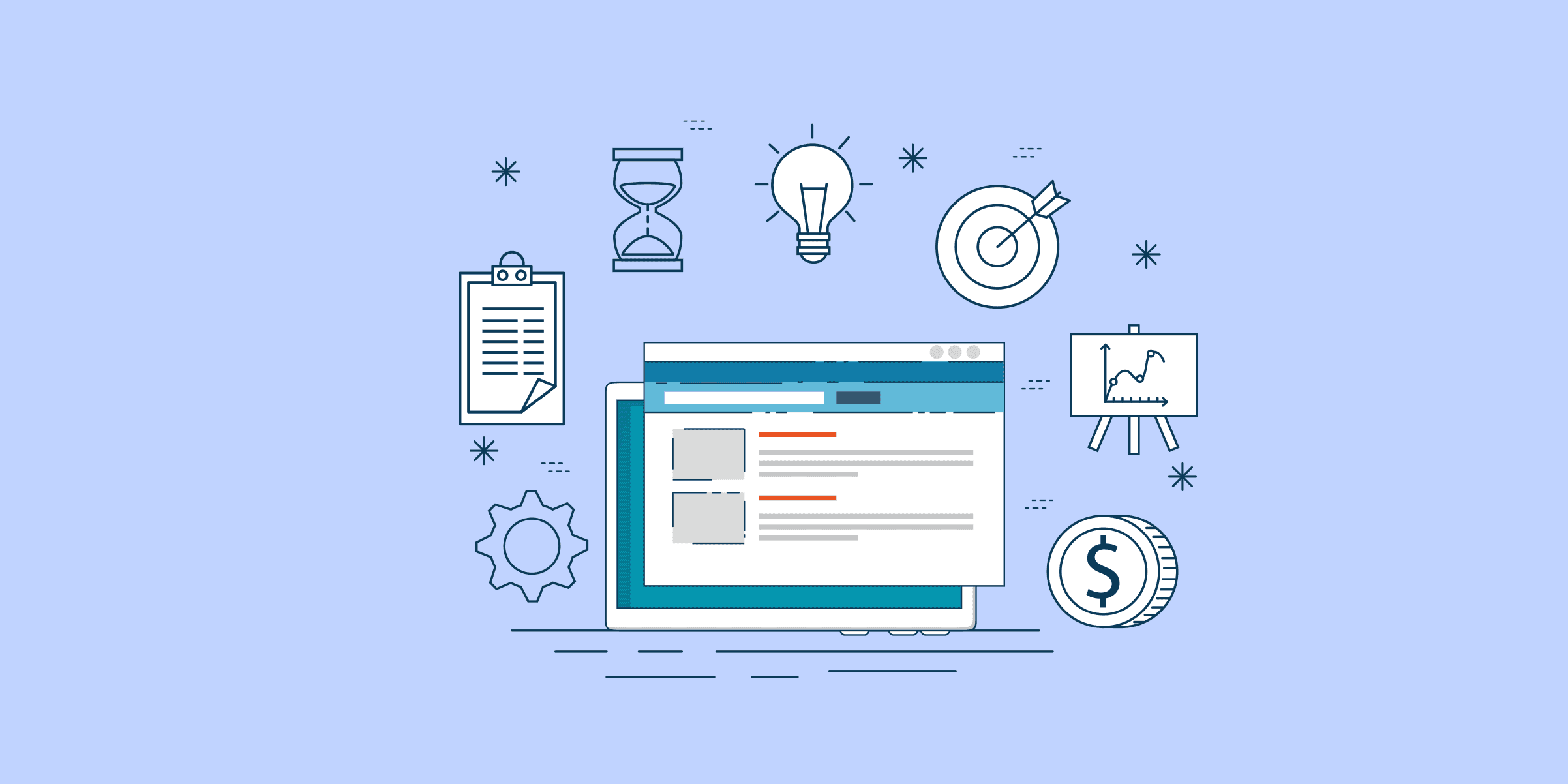
How to Solve the Problem of Your IP Being Blocked?
Being blocked from accessing a website or service due to IP address can be frustrating. Whether it's a result of excessive failed login attempts, suspicious activity, or other security measures, an IP block can restrict your access and hinder your online experience. However, there are steps you can take to overcome this obstacle and regain access to the blocked website or service. In this article, we will explore effective solutions to resolve the problem of your IP being blocked.Identify the Cause of the IP Block:The first step in solving this issue is to determine the reason behind the IP block. Was it triggered by a specific action, such as multiple failed login attempts? Or is it a result of your IP being flagged as suspicious? Understanding the cause will help you choose the most appropriate solution.Use a Different IP Address:If your IP address is blocked, one solution is to switch to a different IP address. This can be accomplished through several methods. First, you can obtain a new IP address from your Proxy Provider (like LIKE.TG PROXY) that offers a wide range of IP addresses from different locations. By connecting to a server, you can mask your original IP address and use a new one to access the blocked website. I think a good proxy can solve the problem of changing IP addresses.Clear Your Browser's Cookies and Cache:Blocked IP access can sometimes be related to cookies or cached data stored on your browser. Clearing these files can help resolve the issue. Go to your browser's settings and find the options to clear cookies and cache. After doing so, restart your browser and attempt to access the website again.Contact Website or Service Support:If the IP block persists, it's worth reaching out to the website or service's support team for assistance. Provide them with details about the block and explain the situation. They may be able to identify any specific actions required on your part or offer insights on how to resolve the issue.Avoid Suspicious Activities:Preventing future IP blocks requires exercising caution while using online services. Avoid activities that may trigger security measures, such as excessive failed login attempts, suspicious downloads, or engaging in activities that violate the website or service's terms of service. By adhering to the guidelines and policies, you can reduce the likelihood of facing IP blocks in the future.Check for Malware or Viruses:Malware or viruses on your device can sometimes trigger IP blocks, especially if they engage in suspicious activities. Run a thorough scan using reputable antivirus software to identify and remove any potential threats. Keeping your device secure is essential for uninterrupted online access.Dealing with a blocked IP address can be inconvenient, but with the right approach, it's possible to regain access to the blocked website or service. By identifying the cause of the IP block, switching to a different IP address like use LIKE.TG PROXY to change your IP address, clearing cookies and cache, seeking support when needed, practicing safe online behavior, and keeping your device malware-free, you can overcome IP blocks and enjoy a seamless online experience. Remember to always respect the rules and guidelines of the websites and services you access to minimize the chances of encountering IP blocks in the future.

In Which Scenarios Should I Use a Proxy IP?
Proxy IPs have become increasingly popular tools for enhancing online privacy, security, and access. By acting as intermediaries between users and the internet, proxy servers can offer a range of benefits depending on the specific scenario. In this article, we will explore different scenarios in which using a proxy IP can be advantageous, empowering you to make informed decisions about when to utilize this technology.Privacy Protection:Privacy-conscious individuals often utilize proxy IPs to safeguard their online activities. By routing your internet traffic through a proxy server, your original IP address is masked, making it more difficult for websites, advertisers, or malicious actors to track your online behavior. This is particularly useful when accessing websites that may collect sensitive information or for maintaining anonymity while browsing.Anonymous Web Surfing:Proxy IPs enable anonymous web surfing by obfuscating your true identity. This can be beneficial when you want to browse websites discreetly or access content that may be restricted in your region. Proxy servers allow you to appear as if you are connecting from a different location, granting you access to regionally restricted content, such as streaming services or geo-blocked websites.Enhanced Security:In scenarios where you want an additional layer of security, proxy IPs can serve as a protective barrier between your device and potentially harmful websites or content. Proxies can filter and block malicious websites, scripts, or downloads, minimizing the risk of malware infections or phishing attacks. They act as a buffer, inspecting incoming requests and ensuring only safe data reaches your device.Content Scraping and Web Crawling:Proxy IPs are commonly used for data scraping or web crawling purposes. These tools allow automated access to websites, extracting data for various applications such as market research, price comparison, or data analysis. By using a proxy IP, you can distribute your requests across multiple IP addresses, preventing excessive traffic from a single source and avoiding potential IP bans or restrictions.Load Balancing and Performance Optimization:In scenarios where you operate high-traffic websites or applications, proxy IPs can be employed for load balancing and performance optimization. By distributing incoming requests across multiple servers, proxies help evenly distribute the workload, preventing server overload and improving response times for users. This ensures a smooth user experience, especially during peak traffic periods.Bypassing Network Restrictions:Proxy IPs can be useful in circumventing network restrictions imposed by educational institutions, workplaces, or public Wi-Fi networks. By connecting to a proxy server, you can bypass firewall restrictions or content filters that limit access to certain websites or services. However, it's essential to adhere to the policies and guidelines set by the network administrator and use proxies responsibly.Using a proxy IP can be advantageous in various scenarios, providing privacy, security, access to restricted content, and performance optimization. Whether you seek to protect your online privacy, bypass regional restrictions, secure your browsing activities, or optimize server performance, proxy IPs offer versatile solutions. However, it's important to choose reputable and reliable proxy services and to utilize them responsibly, adhering to legal and ethical guidelines. By understanding the scenarios in which using a proxy IP can be beneficial, you can harness their power to enhance your online experience.

How to integrate LIKE.TG proxies with MoreLogin?
As a Top-Notch Residential Proxy Provider, Alternative Proxy to 911S5, LIKE.TG Proxy Brand Provides 3types of proxy that are SOCKS5 Residential, Rotating Residential and Static Residential ISP Proxies. Let’s learn how to integratethese proxy types with MoreLogin.LIKE.TGproxy service provides 90M+ real, clean, anonymous residential proxy IPs cover 220+ regions worldwide. Fetch HTTP(S)SOCKS5 rotating residential proxies by API or user+pass auth from web Page. Download powerful proxy software to easily configure global SOCKS5 residential proxies. City, ASN-level targeting, unmetered bandwidth unlimited concurrent sessions proxies. LIKE.TGintegrates global available proxy IPs into one software IP2 proxy manager, compatible with various apps and can be used in brand protection, ad verification, SEO, price integration, academic surveys, social media management, fingerprint browsers, online games, sneakers, e-commerce, data collection, etc.1.SOCKS5 Residential Proxies MoreLoginStep1 Bind one selected with port, and copy IP:Port from Port Forward ListStep2 Paste the proxy info to MoreLogin, and click proxy detection, then click OKStart this profile and Start Working2.Rotating Residential Proxies MoreLoginStep1 Configure Proxy InfoStep2 Paste each proxy info to MoreLogin proxy field and click proxy detectionNote: Choose HTTP or SOCKS5 proxy type in MoreLoginActually HTTP(S) SOCKS5 are both supported in real usage3.Static Residential ISP Proxies MoreLoginStep1 Configure Static Proxy IPStep2 Paste the proxy info to MoreLogin, and click proxy detection, then click OKNote: All proxies have to use in Full Global International Internet EnvironmentThat’s all for this proxy guide of LIKE.TG MoreLogin. Thanks for reading, If there are any questions, feel free to contact us by telegram @LIKE.TGcs or email [email protected]

Do you possess knowledge of the different types of IP proxies available?
In today's digital age, the concept of online privacy and security has become increasingly important. Many internet users, whether individuals or businesses, seek ways to protect their identity and sensitive information while browsing the web. This is where IP proxies come into play. IP proxies serve as intermediaries between users and websites, allowing them to mask their IP addresses and enhance online privacy. In this article, we will explore the different types of IP proxies available and their various applications.1. HTTP ProxiesHTTP proxies, also known as web proxies, are the most common type of IP proxies. They operate at the application layer of the internet protocol suite and are primarily used for web browsing. HTTP proxies allow users to redirect their web traffic through a proxy server, which then requests web pages on their behalf. By doing so, the users' IP addresses remain hidden from the websites they visit. HTTP proxies are widely used for anonymous browsing, accessing geo-restricted content, and bypassing network restrictions.2. SOCKS ProxiesSOCKS (Socket Secure) proxies operate at a lower level than HTTP proxies, working at the transport layer of the internet protocol suite. They offer a more versatile proxying solution as they can handle various types of internet traffic, including web browsing, email, file transfers, and more. SOCKS proxies can proxy TCP and UDP traffic, making them suitable for applications that require real-time communication or non-HTTP protocols. They provide a higher level of anonymity and can be used for activities like torrenting, online gaming, and accessing restricted services.3. Residential ProxiesResidential proxies are IP addresses assigned to devices by internet service providers (ISPs) for residential use. These proxies offer a higher level of authenticity as they appear to come from real residential connections rather than data centers. Residential proxies are highly valued for their ability to mimic real user behavior and bypass anti-bot measures employed by websites. They are commonly used for web scraping, ad verification, market research, and social media management.4. Data Center ProxiesData center proxies, as the name suggests, are IP addresses provided by data centers. Unlike residential proxies, data center proxies are not associated with physical locations or internet service providers. They offer high-speed connections and large IP pools, making them ideal for high-volume activities such as web scraping, search engine optimization (SEO), and managing multiple social media accounts. However, data center proxies may be more likely to be detected by websites implementing stricter security measures.5. Transparent ProxiesTransparent proxies, also known as intercepting proxies, do not hide the users' IP addresses. Instead, they act as intermediaries between users and web servers, often used for caching purposes, content filtering, or monitoring network traffic. Transparent proxies are typically implemented by network administrators or internet service providers within corporate or public networks. While they may not provide anonymity, they can enhance network performance and security in certain environments.IP proxies serve as valuable tools for enhancing online privacy, security, and accessibility. By understanding the different types of IP proxies available, users can choose the most suitable option based on their specific needs. Whether it's HTTP proxies for anonymous web browsing, SOCKS proxies for versatile traffic handling, residential proxies for authentic connections, data center proxies for high-speed operations, or transparent proxies for network management, each type of proxy offers distinct advantages. It is essential to use proxies responsibly and comply with applicable laws and regulations to ensure a safe and secure online experience.

The Benefits of Using Proxy IPs for Spike Purchases
Online seckill events and excessive false orders can often lead to websites blocking users and causing frustration. However, a simple solution exists for overcoming these challenges - using proxy IPs. In this post, we will explore the advantages of using proxy IPs specifically for spike purchases, highlighting how they can enhance access speed, reduce IP consumption, provide security, improve browsing experience, and facilitate convenient user management.Enhanced Access Speed:By utilizing a proxy server, multiple users' requests for internet sites are routed through the same proxy server. This setup allows the proxy server to store information from browsed sites, eliminating the need to reconnect to remote servers. Consequently, bandwidth is saved, and website browsing speeds are significantly increased. When it comes to spike purchases, where every second counts, a faster access speed can be a game-changer.Reduced IP Consumption:Proxy servers that employ high-profile IP proxies can effectively save website resources. This means that by using proxy servers, the demand for Internet Protocol Addresses is reduced. In scenarios where websites restrict access based on IP limits, using a proxy IP can help bypass such limitations and ensure successful spike purchases.Enhanced Security:Proxy IPs can act as a firewall, offering an additional layer of security for local area networks. When using a proxy server, only the proxy server is visible from the outside, while users on other local networks remain invisible. This shield-like functionality ensures the security of the local area network. Proxy servers also enable IP address filtering, allowing users to restrict access permissions between the intranet and external networks. Moreover, they can be used to block specific IP addresses, providing added protection against potential threats.Improved Browsing Experience:Proxy servers often have large hard disk buffers, enabling them to store external information in the buffer. Subsequent users who access the same information can retrieve it directly from the buffer, thereby enhancing access speed. This improvement is particularly advantageous during spike purchases, as it enables quicker retrieval of product pages and checkout processes.Convenient User Management:When changing IP addresses, proxy servers offer users the ability to easily manage their user experience. By conducting batch speed measurements, individuals can quickly find suitable IPs for their specific needs and save records accordingly. This feature streamlines the process of filtering out IPs that are not optimal, saving time and providing convenience, especially during spike purchase events.Utilizing proxy IPs for spike purchases brings several benefits, including enhanced access speed, reduced IP consumption, improved security, an optimized browsing experience, and convenient user management. By leveraging proxy servers, individuals can overcome the challenges of online seckill events and avoid being blocked by websites. When time is of the essence, proxy IPs can give users an edge in securing the desired products during spike purchase opportunities.

Exclusive IP vs Shared IP: Understanding the Difference
When it comes to IP (Internet Protocol) addresses, two common terms you may encounter are "exclusive IP" and "shared IP." These terms refer to how IP addresses are assigned and used in various networking scenarios. Understanding the difference between the two can help you make informed decisions about your online activities, security, and privacy. Let's delve into each type:Exclusive IP:An exclusive IP address, also known as a dedicated IP address, is a unique identifier assigned to a single device or entity. In this setup, the IP address is solely dedicated to a particular user or organization. It is not shared with any other users, meaning that all network traffic associated with that IP address originates from and is attributed to the same entity.Exclusive IP addresses are commonly used in certain scenarios, such as:Web Hosting: Websites that require SSL certificates (HTTPS) for secure connections often utilize dedicated IP addresses. This allows visitors to access the website securely through a unique IP.Email Marketing: Dedicated IP addresses can be used by email marketing platforms to send large volumes of emails, ensuring better deliverability and reputation management.Remote Access: Companies may employ dedicated IPs for remote access to their internal systems, enhancing security and control over network access.Shared IP:A shared IP address, also called a dynamic IP address, is an IP that is shared among multiple users simultaneously. In this case, numerous devices or entities are assigned the same IP address, and network traffic from all these users appears to originate from the same IP.Shared IP addresses are commonly found in various scenarios, including:Residential Internet Connections: Internet Service Providers (ISPs) often allocate shared IP addresses to residential customers. Multiple households can share the same IP address, with the ISP managing the routing of traffic.Public Wi-Fi Networks: Public places like cafes, airports, or libraries usually offer Wi-Fi connectivity with shared IP addresses. Many users can connect to the same network and access the internet through a shared IP.Virtual Private Networks (VPNs): VPN services often employ shared IP addresses to anonymize and distribute user traffic across multiple users, increasing privacy and security.The Key Differences:The fundamental difference between exclusive and shared IP addresses lies in their uniqueness and usage. Here are the primary distinctions:Uniqueness: Exclusive IP addresses are dedicated to a single user or entity, while shared IP addresses are used by multiple users simultaneously.Control: With exclusive IP addresses, users have complete control over the IP and the associated network traffic. In shared IP scenarios, control is typically managed by a central authority, such as an ISP or VPN service provider.Reputation: Exclusive IP addresses are less likely to be associated with malicious activities, as they are used solely by a single entity. Shared IP addresses may face reputation risks, as the actions of one user can affect the reputation of others sharing the same IP.Cost: Exclusive IP addresses generally come at a higher cost, as they require dedicated resources and provisioning. Shared IP addresses are more cost-effective since the infrastructure is shared among multiple users.Both exclusive and shared IP addresses have their merits and specific use cases. The choice depends on your requirements, such as security, control, reputation, and budget.Remember, regardless of the type of IP address you use, it's crucial to follow best practices for online security, privacy, and responsible internet usage.Stay safe and connected!

A Comprehensive Guide: Boost Your Network Promotion with IP Proxies
Now network promotion has become an essential strategy for businesses and individuals alike. However, with increased online competition, it's crucial to find effective ways to stand out and reach your target audience. One powerful tool that can assist you in this endeavor is an IP proxy. In this post, we will explore how you can leverage IP proxies to enhance your network promotion efforts and maximize your online presence.Understanding IP Proxies:Before diving into their application, let's briefly explain what IP proxies are. An IP proxy acts as an intermediary between your device and the internet. It masks your real IP address and assigns you a new one, making it appear as if you are browsing from a different location. This anonymity and ability to change IP addresses are key features that can greatly benefit your network promotion activities.Enhancing Privacy and Security:Using IP proxies helps safeguard your online privacy and security. By hiding your real IP address, you protect your personal information from potential malicious actors. This is especially relevant when engaging in network promotion activities that involve accessing various websites, forums, or social media platforms.Geo-Targeted Marketing:IP proxies allow you to access the internet from different geographic locations. This capability is particularly valuable for geo-targeted marketing campaigns. By simulating browsing from specific locations, you can tailor your content, advertisements, and offers to suit regional preferences, languages, and cultural nuances. This level of customization increases your chances of resonating with your target audience and achieving higher conversion rates.Overcoming Content Restrictions:Certain websites or platforms may have content restrictions based on your geographical location. This can hinder your network promotion efforts, particularly if you're targeting an international audience. By using IP proxies, you can bypass these restrictions and access geo-restricted content. This enables you to gather insights, study competitors, and engage with a broader range of potential customers, regardless of their location.Competitor Analysis:IP proxies can be valuable tools for conducting competitor analysis. By switching between different IP addresses, you can gather insights on your competitors' strategies, promotions, and customer interactions. This information can guide your own network promotion efforts, helping you identify gaps in the market, refine your messaging, and gain a competitive edge.Social Media Management:Managing multiple social media accounts is a common practice for network promotion. However, platforms like Facebook, Instagram, and Twitter may restrict the number of accounts that can be managed from a single IP address. IP proxies can solve this issue by providing you with multiple IP addresses, allowing you to effectively manage and promote multiple social media accounts without any restrictions.In the fast-paced world of network promotion, utilizing IP proxies can significantly enhance your marketing strategies. By leveraging the power of IP proxies, you can protect your privacy, target specific regions, overcome content restrictions, conduct competitor analysis, and manage multiple social media accounts seamlessly. However, it's crucial to use IP proxies responsibly and ethically, adhering to the terms of service of the platforms you engage with. Embrace this valuable tool and unlock new possibilities for expanding your network promotion efforts in the digital landscape.

Enhancing Web Crawling with IP Proxies: A Comprehensive Guide
Web crawling, a fundamental component of data collection and analysis, enables the extraction of vast amounts of information from the internet. However, web crawlers often face challenges such as IP blocking, rate limiting, and geographical restrictions. To overcome these obstacles and optimize web crawling operations, IP proxies can be utilized. In this article, we will explore how to effectively use IP proxies to assist web crawlers and ensure smooth and uninterrupted data acquisition.1. Rotating IP AddressesOne of the primary benefits of using IP proxies for web crawling is the ability to rotate IP addresses. Many websites implement rate limits or IP blocking mechanisms to prevent excessive scraping or unauthorized access. By employing a pool of IP proxies, web crawlers can dynamically switch between different IP addresses, making it difficult for websites to detect and block their activities. Rotating IP addresses helps distribute requests across multiple proxies, ensuring a higher success rate and reducing the risk of being blocked.2. Overcoming Geographical RestrictionsCertain websites enforce geographical restrictions on their content, limiting access to users from specific regions. However, with IP proxies, web crawlers can easily bypass these restrictions. By utilizing proxies located in the desired geographical locations, crawlers can simulate requests as if they are originating from within the permitted regions. This enables comprehensive data collection from websites that may otherwise restrict access based on location.3. Handling IP Blocking and Anti-Scraping MechanismsWeb crawlers often encounter IP blocking and anti-scraping mechanisms implemented by websites to protect their data. These mechanisms can detect and block suspicious crawling behavior, resulting in limited access or complete blocking of the crawler's IP address. By leveraging IP proxies, crawlers can evade detection and bypass such mechanisms. Proxies distribute requests across different IP addresses, making it challenging for websites to associate them with a single source. Additionally, using a diverse set of IP proxies reduces the risk of triggering anti-scraping measures.4. Managing Request Frequency and Load DistributionEfficiently managing the frequency of requests is crucial for successful web crawling. Websites may impose rate limits to prevent overwhelming their servers with excessive traffic. By utilizing IP proxies, web crawlers can distribute requests across multiple proxies, effectively reducing the load on individual proxies and ensuring compliance with rate limits. Proxies allow for parallel processing, enabling faster data retrieval and efficient load distribution, thereby enhancing the overall crawling performance.5. Choosing the Right Proxy TypeSelecting the appropriate type of IP proxy is essential for effective web crawling. Residential proxies mimic real-user connections and are suitable for scraping websites that employ bot detection measures. Data center proxies offer high-speed connections and larger IP pools, making them ideal for high-volume scraping tasks. Depending on the specific requirements of the web crawling project, choosing between residential proxies and data center proxies can optimize performance and success rates.6. Ensuring Proxy Reliability and QualityWhen utilizing IP proxies for web crawling, it is crucial to select reliable and high-quality proxies. Reliable proxies offer stable connections, low latency, and high uptime, ensuring a smooth crawling experience. Quality proxies come from reputable providers and offer a sufficient number of IP addresses to avoid IP exhaustion. Additionally, regularly monitoring the health and performance of the proxies and promptly replacing any underperforming or banned proxies is essential for maintaining a seamless crawling operation.Using IP proxies effectively can significantly enhance web crawling operations by overcoming IP blocking, rate limiting, and geographical restrictions. By rotating IP addresses, overcoming anti-scraping measures, managing request frequency, and distributing the load, web crawlers can scrape data more efficiently and reliably. Choosing the right type of proxy, ensuring their reliability and quality, and monitoring their performance are key factors in achieving successful web crawling outcomes.

A Comprehensive Guide to Proxy Anonymity and Use Cases
IntroductionNavigating the digital landscape can be a complex task, with numerous tools designed to enhance online security, such as proxies. As mediators in the interaction between users and web servers, proxies can provide varying degrees of anonymity. This guide will delve into the different types of proxy anonymity, the usage of anonymous proxies, and the cautious approach necessary when considering free anonymous proxies.Understanding Proxy Anonymity LevelsProxy servers, obtained from reliable providers, ensure the user's information is concealed to offer some level of anonymity. There's a spectrum to this concealment, and we can categorize it into three distinct levels:Elite Proxies (Level 1): As the name implies, these high-anonymity proxy servers provide the utmost privacy. Beyond just obscuring the IP address, they also veil the use of a proxy server. This feature makes them ideal for sensitive data gathering tasks where privacy is a non-negotiable requirement. Key identifying headers like Authorization, From, Proxy-Authorization, Proxy-Connection, Via, and X-Forwarded-For are often removed to ensure anonymity.Anonymous Proxies (Level 2): These proxies offer a medium level of anonymity, concealing the IP address but disclosing the use of a proxy server to the destination server. Some websites can identify these proxies and block them, which may necessitate the use of elite proxies or proxy server rotation.Transparent Proxies (Level 3): Offering no anonymity, transparent proxies include the user’s IP address in the X-Forwarded-For header and make the proxy IP visible in the Via header. Generally, users are not aware of their connections being directed through these proxies, as they're configured on the server side to control web traffic.Exploring Anonymous Proxy Use CasesAnonymous proxies are versatile and can be employed for personal or business purposes. Their ability to conceal IP addresses opens up various applications:Personal Use: Anonymous proxies can enrich the user's browsing experience. If you aim to evade targeted ads, bypass geo-restrictions, or safeguard your search history, these proxies are your allies. They also serve as a protective shield against identity theft.Business Use: Companies can utilize anonymous proxies for general business tasks, such as scraping competitive data or conducting brand research. However, for complex tasks like monitoring customer reviews, businesses may need to resort to elite proxies to bypass CAPTCHAs and IP blocks.Evaluating Free Anonymous ProxiesWhile free proxies may seem an appealing option, they come with their share of risks. From the lack of support for secure HTTP(S) connections to the potential exposure of user’s cookies, free proxies pose significant security risks. Furthermore, studies suggest that most free proxies are either unreliable or laden with malicious software.Therefore, it's prudent to opt for proxies from a reputable provider. Such a choice ensures safe and efficient task execution. We also recommend reading our blog post highlighting the risks associated with free proxies for a comprehensive understanding.This guide hopes to serve as a helpful resource in understanding the intricacies of proxy servers. As with all digital tools, careful assessment and informed decision-making are crucial to maximizing their potential while maintaining robust online security.

Exploring Reverse Proxy and its Applications in Web Server Management
Introduction:Proxy servers play a crucial role in facilitating network communications and enhancing security. While forward proxies are commonly used by clients to access target servers, reverse proxies are deployed on web servers to handle incoming requests. This article delves into the concept of reverse proxy, highlights its differences from forward proxy, and explores the various applications and benefits it offers in web server management. Additionally, we will explore the capabilities and features provided by LIKE.TG's extensive proxy IP resources.I. Understanding Reverse Proxy and its WorkflowReverse proxy refers to the process by which a proxy server obtains resources from backend servers in its network and returns them to the client. It acts as an intermediary between clients and server clusters, providing anonymity, security, caching, and server load balancing. The workflow of a reverse proxy involves the client initiating a request, which is then forwarded to a server in the network. The server processes the request and returns the result to the reverse proxy, which subsequently delivers it to the client. This working characteristic makes reverse proxies valuable in various applications, such as customer service businesses.II. Differentiating Forward Proxy and Reverse ProxyForward proxy and reverse proxy serve distinct roles in network architectures. A forward proxy enables computers on a private network to access the public internet, acting as the point of exit for subnet users. On the other hand, a reverse proxy acts as the entry point for external systems to access resources on a private subnet. It serves as a public access point, facilitating secure connections between users and servers residing in isolated subnets.III. Applications and Benefits of Reverse ProxyReverse proxy offers several advantages in web server management:Enhanced Security and Anonymity: By hiding the server address, reverse proxy protects the server from direct exposure to the internet, reducing the risk of unauthorized access and potential attacks.Load Balancing: Reverse proxies distribute client requests among backend servers, ensuring efficient utilization of server resources and preventing overload.Caching: Reverse proxies can cache frequently requested pages, reducing server load and improving response times for subsequent requests.Scalability: Reverse proxies enable seamless scaling of web applications by adding or removing backend servers without impacting clients.SSL Termination: Reverse proxies can handle SSL encryption and decryption, offloading this resource-intensive task from backend servers.IV. Leveraging LIKE.TG's Proxy IP ResourcesLIKE.TG offers a comprehensive range of high-speed, high-availability dynamic proxy IP resources. With over 90 million real residential IP addresses across 220+ countries and regions, LIKE.TG enables users to improve web crawling, SEO monitoring, advertising verification, and other services. The customizable extraction capabilities and rapid response times provided by LIKE.TG ensure smooth business operations for users.Conclusion:Reverse proxy plays a crucial role in web server management, offering enhanced security, anonymity, load balancing, caching, and scalability. By leveraging LIKE.TG's extensive proxy IP resources, businesses can optimize their web crawling and data collection processes, ensuring efficient and reliable operations in an increasingly interconnected digital landscape.

Unveiling the Power of LIKE.TG Residential Proxies: An In-Depth Exploration of Anonymity and Efficiency in Proxy Networks
Introduction:In today's digital landscape, the use of proxy servers has become increasingly prevalent. These servers act as intermediaries between users and target servers, effectively serving as a "man in the middle" by intercepting and masquerading connections. While there are various types of proxies available, one type that stands out is the residential proxy. In this article, we will delve into the world of residential proxies, examining their unique features and the advantages they offer.Understanding Residential Proxies:Residential proxies differ from other proxies in that they employ real IP addresses assigned to physical devices by Internet Service Providers (ISPs), rather than relying on data centers. Each residential proxy IP is associated with a genuine location, making it difficult to differentiate between residential proxy users and regular internet users. This high level of anonymity makes residential proxies invaluable for bypassing website countermeasures and facilitating business development.Advantages of Residential Proxies:1. Highly Anonymous: Residential proxies, utilizing real IP addresses and physical devices, are incredibly challenging to detect by websites. This heightened anonymity enables users to navigate the web without being flagged, empowering businesses to overcome restrictions and enhance operational efficiency.2. Large Proxy Pool: Residential proxy providers boast vast pools of IPs, offering millions of options to users. With such diversity, users can make numerous requests without encountering the same IP twice. This abundance of proxy IPs enhances availability, facilitates dynamic IP forwarding, and boosts overall business efficiency.3. Easy Management: Residential proxies employ reverse connections to residential servers. Users receive a URL-like address to connect to the proxy server, while the server selects an IP from the provider's proxy pool. While the IP may change over time, the user's server address remains the same. This seamless process is particularly beneficial for tasks like web scraping, enabling efficient management and data acquisition.The Role of Residential Proxies in Various Scenarios:Residential proxies are versatile tools utilized in different scenarios, including:1. Market Research: With residential proxies, businesses can conduct web data scraping to gather crucial information quickly. This enables them to stay ahead of competitors by collecting data on prices, rankings, reviews, and keywords, optimizing their products and services accordingly.2. Advertisement Verification: Residential proxies are instrumental in detecting and verifying ad links, ensuring campaigns are displayed as intended to end users. This enhances advertising effectiveness and prevents fraudulent activities.3. Social Networking: Social media platforms like Instagram, Pinterest, Twitter, and Facebook require careful handling. Residential proxies enable users to create and manage multiple accounts, increase followers, and conceal their actual locations, all while adhering to platform guidelines.4. Distribution and Retail: Residential proxies play a vital role in various e-commerce activities, such as dealing with sneaker bots, unblocking and scraping platforms like eBay, Shopify, and Craigslist, and accessing exclusive regional deals and content.Why Choose Residential Proxies:Residential proxies offer several compelling reasons to opt for their usage:1. Authenticity and Anonymity: Residential proxies provide genuine and anonymous connections, as their IP addresses are associated with real physical devices. This authenticity is crucial in bypassing restrictions and engaging with target sites without raising suspicion.2. Legitimacy and Security: As the IP addresses are provided by ISPs, residential proxies appear legitimate and are less likely to be blocked compared to data center proxies. This enhances security and ensures a smoother web scraping process.3. Scalability: Residential proxies support unlimited concurrent demands, offering greater flexibility and scalability for businesses. With millions of IPs at their disposal, users can handle vast workloads with ease.Conclusion:Residential proxies offer a powerful combination of anonymity, reliability, and efficiency in the realm of proxy networks. Their ability to emulate genuine connections and bypass restrictions opens up a myriad of opportunities for businesses, ranging from market research to advertisement verification and social media management. By harnessing the power of residential proxies, organizations can take their operations to new heights, gain a competitive edge, and navigate the digital landscape with ease.

Unlocking the Full Potential of Proxy IP: Beyond Hiding Your IP Address
As one of the essential components for accessing websites, an IP address plays a crucial role in online interactions. Most people are familiar with proxy IP primarily for its ability to conceal a user's real IP address. However, proxy IP serves a more significant function beyond anonymityit can significantly contribute to network acceleration. In this article, we will explore the multifaceted nature of proxy IP and how it enhances online activities.1. Network Acceleration with Proxy IP:Proxy IP operates through a proxy server, which contains a buffer. When a user connects to the network and sends a request for information or when previously requested information is updated, it is automatically saved in the buffer. If another user accesses the same information, the proxy server retrieves the previously stored data from the buffer, improving access speed. This caching mechanism enhances network acceleration, allowing for faster retrieval and delivery of requested data.2. Importance of Proxy Server Performance:To achieve effective network acceleration, the performance of the proxy server itself is crucial. If the proxy server's performance is subpar, it can have the opposite effect and lead to network delays. Factors such as poor network speed at the server location, long transmission distances, or unstable target site speeds can also contribute to delays. Therefore, it is vital to ensure that the proxy IP used has excellent stability and is supported by a reliable proxy server infrastructure.3. Proxy IP for Enhanced Online Activities:Proxy IP offers numerous benefits beyond hiding your real IP address. By using a proxy server, you can access region-restricted content, bypass geo-blocking, and overcome internet censorship. Whether you're streaming media, accessing online gaming servers, or engaging in e-commerce, proxy IP provides a versatile solution for improving your online experience.4. Dynamic Forward Proxy IP:Proxy IP services often offer dynamic forward proxy IP, which automatically switches the assigned IP address for users. This feature ensures seamless browsing without the need for manual IP switching. The dynamic nature of proxy IP enhances user convenience, saving time and effort in managing IP configurations.Conclusion:While proxy IP is widely recognized for its ability to hide a user's real IP address, its network acceleration function is equally important. By leveraging a proxy server's buffer system, proxy IP improves access speed by retrieving cached data. This network acceleration capability proves invaluable for various online activities, including streaming, gaming, and e-commerce. Additionally, proxy IP services offer dynamic forward proxy IP, simplifying the browsing experience by automatically switching assigned IP addresses. With proxy IP, users can unlock the full potential of their online activities, enjoying enhanced speed, accessibility, and convenience.

A Deep Dive into SOCKS5: Understanding Its Versatility and Comparing It to HTTP Proxies
In the world of digital communication, data security, and anonymity hold a paramount place. The continuous evolution of the internet has given birth to several protocols, each with unique advantages and challenges. Among these, SOCKS5 proxies have gained significant attention due to their versatility and ability to manage a variety of traffic types. This article explores the intricacies of SOCKS5, its comparison with HTTP proxies, and the role it plays in our digital lives today.SOCKS5, an abbreviation for Socket Secure version 5, is the latest iteration of the SOCKS protocol. It is lauded for its versatility, speed, and anonymity. SOCKS5 proxies enable many tasks that HTTP(S) IPs find challenging, including gaming, video streaming, torrents, and web scraping. You can use them for just about anything. Moreover, SOCKS5 proxies can be residential, data center, ISP, or mobile addresses, providing an array of options to the users.The SOCKS5 protocol acts as an intermediary that allows data to be sent from one device to another via a third device, known as a SOCKS server or simply a SOCKS proxy. It has been designed to be an all-purpose proxy solution and can handle almost any protocol, program, or type of traffic, whether it's web pages, emails, torrents, video streaming, or games.Comparing SOCKS4 and SOCKS5 proxies, the latter introduces several vital features, such as more authentication options, support for IPv6 IP addresses, remote DNS queries, and compatibility with UDP protocol, not just TCP. These features are essential for users who need to transfer data in real-time, as in many video streaming services and video games.On the other hand, HTTP proxies specifically work with HTTP(S) protocols, or in simpler terms, websites. They usually have only ports 80 and 443 open, ruling out other types of traffic. Compared to HTTP proxies, SOCKS5 proxies are more versatile, allowing users to unblock content and work with all kinds of data. SOCKS5 proxies have several key uses. They can help users hide their IP addresses, chat, make video calls, use streaming websites, download torrents, play games, access forbidden content.However, like any technology, SOCKS5 proxies come with their set of advantages and drawbacks. They ensure a high level of anonymity and are great for traffic-intensive tasks. On the flip side, they are generally more expensive compared to HTTP(S) IPs, data goes through them unencrypted, and they are not supported by some applications.A point of caution, the use of free SOCKS5 proxies can often be tempting but fraught with risks, including slow and unreliable service due to sharing with multiple users, frequent downtime, and general instability. Instead, users are advised to consider premium or cheap SOCKS5 proxies that offer better reliability and performance.In conclusion, SOCKS5 proxies stand as a strong choice in the realm of internet protocols, offering versatility, speed, and anonymity. However, users need to be aware of their limitations and risks, especially compared to alternatives such as HTTP proxies. As the digital world continues to evolve, users must stay informed to make the best choices for their specific needs.

Unveiling Static Residential ISP Proxies: A Revolutionary Leap in the Proxy Landscape
In the online cosmos, proxies have emerged as crucial intermediaries, shielding user identities and optimizing digital interactions. Among the available varieties, data center proxies have carved a niche for themselves, offering an affordable, high-speed solution easily accessible to many users. However, the digital sphere is witnessing an exciting evolution – the rise of Static Residential ISP Proxies. As we dive into this innovative development, it's worth understanding the profound impact this new breed of proxies could have on the online landscape.Deciphering Static Residential ISP ProxiesAnchored to Internet Service Providers (ISPs), Static Residential ISP Proxies represent unique IP addresses that stand apart from traditional residential proxies. Instead of being tethered to individual devices such as smartphones or computers, these proxies are hosted on robust servers. The result is a consistent online presence, a steady digital identity that users can rely upon.Born from a blend of creativity and technological acumen, Static Residential ISP Proxies are the outcome of proxy providers registering data center IP addresses under ISPs. This hybridization process brings together the advantages of both data center and residential proxies. Users can thus benefit from the cost-effectiveness and speed of data center proxies, coupled with the credibility and stealth of residential proxies.Even though these benefits are significant, the prevalence of Static Residential ISP Proxies isn't widespread yet. The concept's successful implementation depends largely on the cooperation of ISPs—a challenging task. Consequently, these proxies remain relatively rare but are gradually gaining prominence within the online community.The Advantages of Static Residential ISP ProxiesWhen the cost-effectiveness and speed of data center IPs fuse with the authenticity and undetectability of residential IPs, the result is a highly efficient proxy solution:1. High-speed Connectivity: Anchored in data centers operating at 1 Gbps or even faster, these proxies ensure minimal response time, keeping the impact on your connection speed to a minimum.2. Uncompromised Uptime: With commercial servers boasting up to 99.9% uptime, downtime becomes a negligible concern.3. Optional Rotation: While IP rotation is beneficial for tasks like web scraping, it might not always be necessary. With Static Residential ISP Proxies, rotation is an available option but not a compulsion.4. High Anonymity: Registered under consumer ISPs, these proxies appear as legitimate IP addresses to websites, effortlessly bypassing security mechanisms that rely on IP reputation.5. Unlimited Bandwidth: Depending on the provider's pricing model, users may enjoy unlimited bandwidth, a feature that can lead to significant savings for data-intensive tasks.However, despite their advantages, Static Residential ISP Proxies do come with certain considerations. These include a relatively high price due to sourcing challenges, limited geographic coverage, fewer subnets, and potential identification as data center addresses due to regional ISPs.Despite these considerations, Static Residential ISP Proxies are excellent for managing multiple social media or e-commerce accounts and sneaker copping, due to their high anonymity and predictable nature. They're also gaining popularity for web scraping, given their financial viability.In ConclusionStatic Residential ISP Proxies represent a powerful combination of data center and residential IPs. Despite certain limitations, their rapid adoption in specific niches is evident. With their increasing popularity, we can expect Static Residential ISP Proxies to become more common in the future, hopefully leading to more competitive pricing. These innovative proxies are indeed poised to revolutionize the future of proxy solutions.

Maximizing Business Potentials with LIKE.TG: Your Ultimate Proxy Server Solution
IntroductionIn the ever-evolving world of digital business, the need for secure, scalable, and reliable online tools is paramount. As businesses venture into diverse digital landscapes, the importance of proxy servers, like LIKE.TG, has emerged front and center. The Role of Proxy Servers in Businesses Navigating the digital space comes with unique challenges, from managing geo-restrictions to coping with limited edition items and scraping the web for valuable data. Proxy servers offer a solution by creating a secure and private connection that masks the user's original IP address. This ensures privacy, bypasses geographical restrictions, and facilitates an extensive array of online tasks.LIKE.TG SolutionLIKE.TG, with its dedicated/sharedproxy servers, provides businesses with a secure and reliable option. This tool is especially beneficial for tasks like web scraping, data aggregation, market research, SEO metrics monitoring, ad fraud prevention, social media management, intellectual property protection, and even improving server speed and security.Unlike public proxies that can be prone to security and abuse problems, LIKE.TG’s dedicated/sharedproxies provide businesses with a secure environment. This is especially critical when dealing with sensitive information and conducting operations on a large scale.Unlocking Business Potentials with LIKE.TGWhether it's gathering large amounts of data from public sources or managing multiple social media accounts, LIKE.TG offers a practical solution. For instance, data scraping, a valuable technique for market research, becomes significantly more efficient with LIKE.TG. The platform's rotating residential proxies supply constantly changing IPs that belong to real devices, which can mimic organic traffic and bypass restrictions.When it comes to managing social media accounts or purchasing limited edition items, LIKE.TG's proxies can also come in handy. They allow you to operate multiple accounts or make multiple purchases without triggering any flags or bans, ensuring your business runs smoothly.ConclusionIn the digital business world, the versatility, security, and efficiency offered by dedicated/sharedproxy servers like LIKE.TG are invaluable. By understanding its capabilities and how to utilize them to their full potential, businesses can better navigate the digital landscape, overcome challenges, and ultimately drive success. So, step into a world of improved security, efficiency, and business potential with LIKE.TG.




























